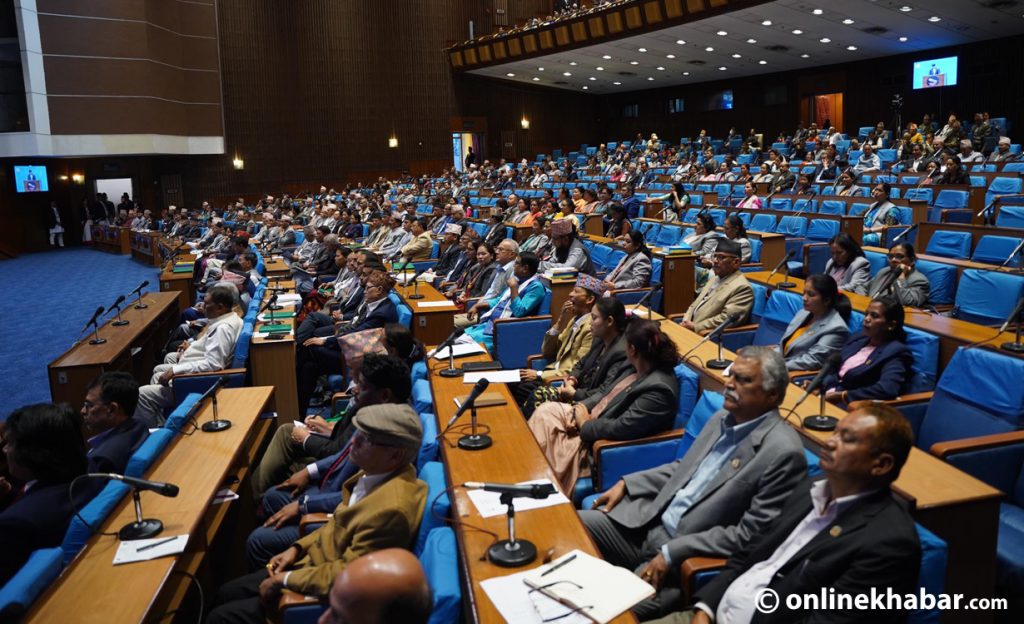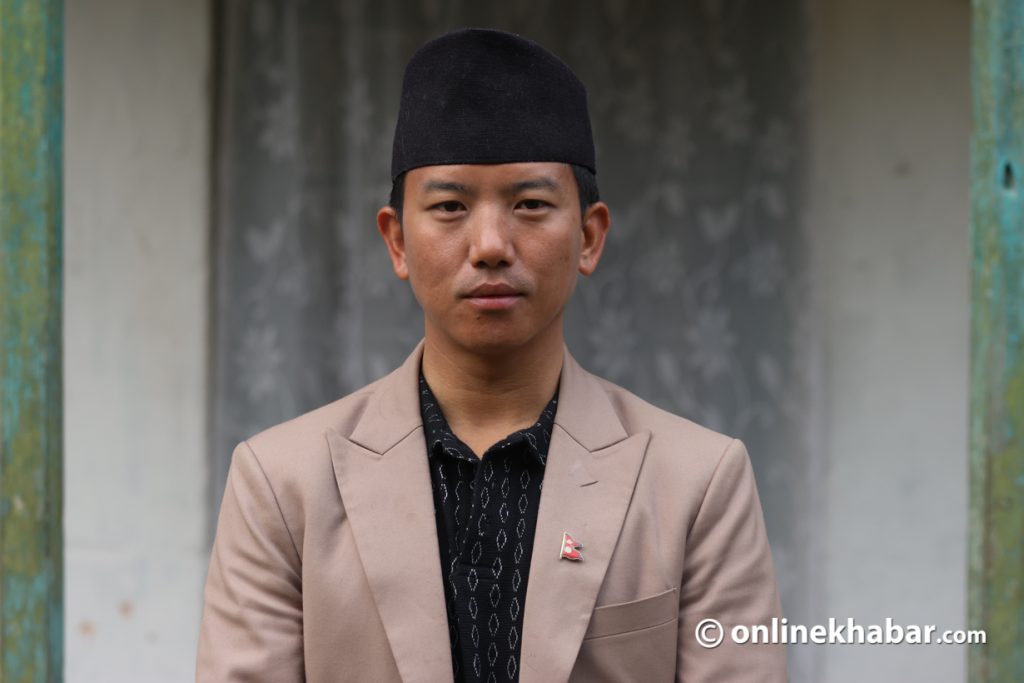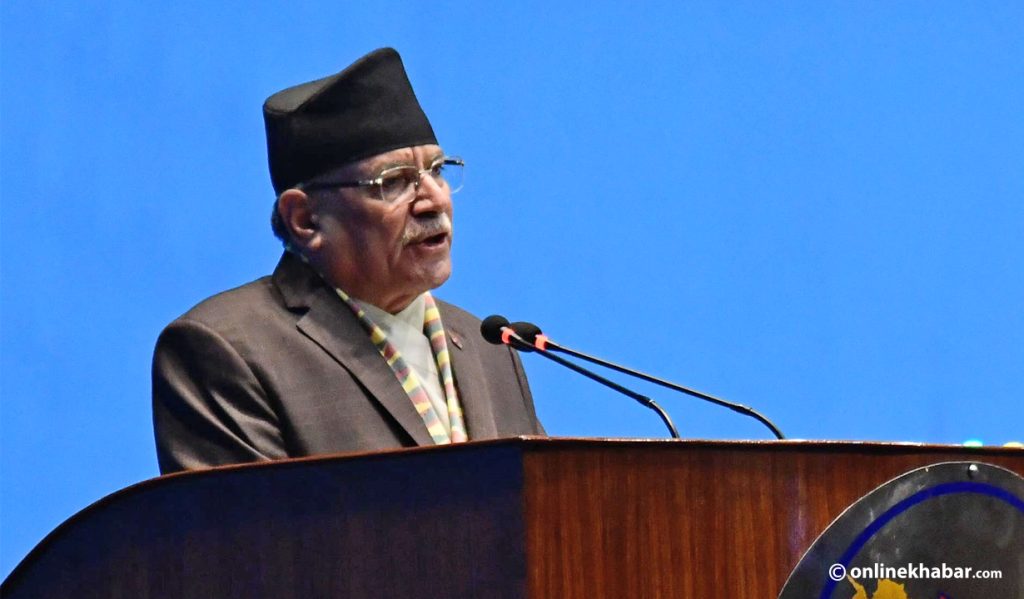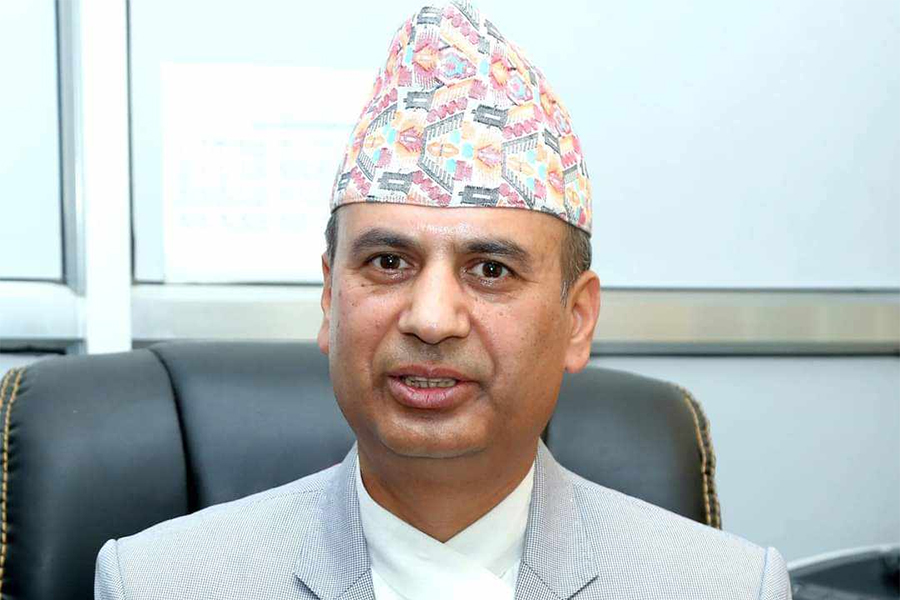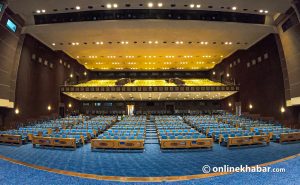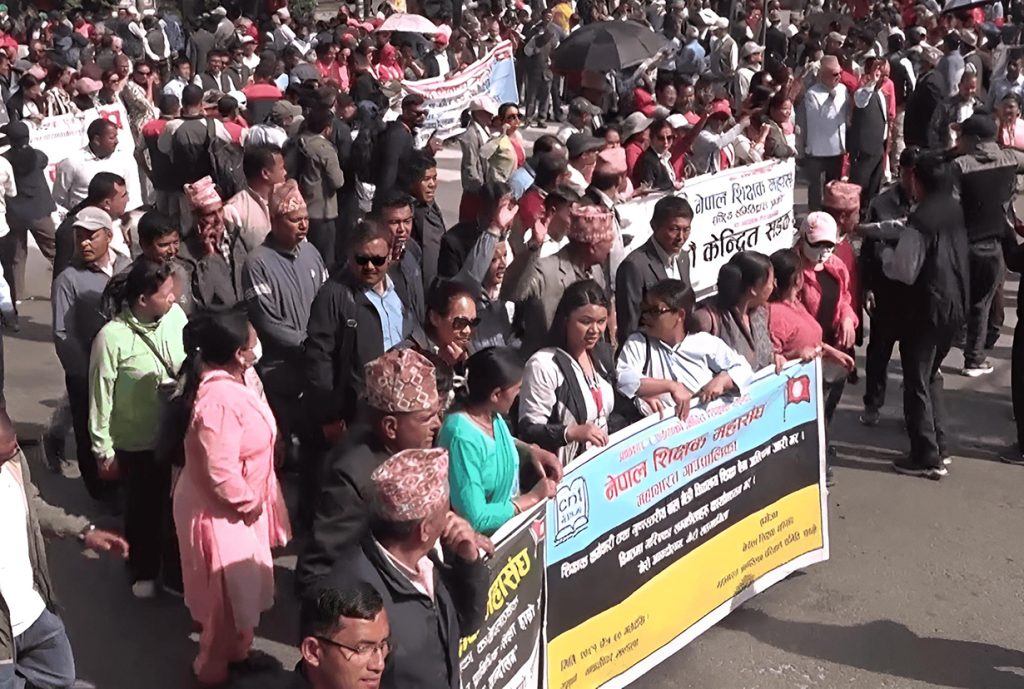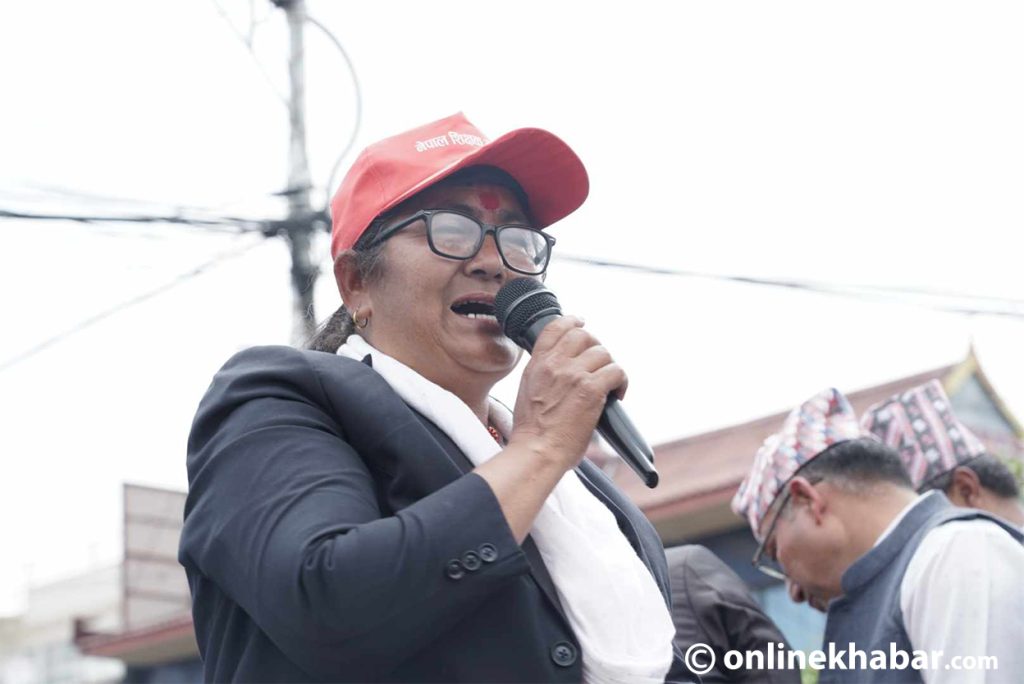
Kathmandu, February 6
The winter session of the Federal Parliament commenced on Monday.
In his opening address to the House of Representatives, Speaker Devraj Ghimire announced the start of new practices to enhance the Parliament’s effectiveness, activity, and vibrancy during the winter session.
Parliamentary calendar
The first new practice introduced is the unveiling of the parliamentary calendar, intended to ensure the timely execution of parliamentary activities. The Business Advisory Committee has prepared a schedule outlining the topics to be discussed in the upcoming sessions of both the House of Representatives and the National Assembly, extending until February 27.
Minister of Law, Justice, and Parliamentary Affairs, Dhanraj Gurung, said that the adoption of the parliamentary calendar by the Parliament will clear any confusion regarding meeting days.

Prebudget discussion by March end
During the winter session, discussions on the principles and priorities of the budget, known as the pre-budget discussion, are taking place. To facilitate the required legal procedures for this, the government introduced the ‘Economic Procedure and Fiscal Responsibility (First Amendment) Ordinance, 2024’ in the Parliament.
On Monday, Finance Minister Prakash Sharan Mahat presented the ordinance. As per the ordinance, the deliberations on the principles and priorities of the budget are scheduled to take place in the month of Falgun, spanning from February 12 to March 13.
To address the previous challenge of excluding parliamentarians’ suggestions during the annual session’s pre-budget discussion, the pre-budget dialogue will now occur during the winter session, starting from February 27, according to Minister Gurung.
Speaker Ghimire said he is in talks with the Prime Minister, Minister of Finance, and Minister of Law, Justice, and Parliamentary Affairs to ensure that concerns raised by MPs during the pre-budget discussions are incorporated into the budget.
There is a concerted effort to break away from past practices and understandings that limited the inclusion of parliamentarians’ suggestions in the government’s budget, both politically and practically. The aim is to foster a more inclusive and responsive budgetary process.
E-attendance

Electronic attendance for members of the House of Representatives commenced on Monday, following the National Assembly’s earlier adoption of the technology. In addition to electronic attendance, the Federal Parliament has introduced a new measure to enhance transparency.
The daily attendance records of parliamentarians in the House of Representatives will now be made public. This move aims to streamline the process for citizens who previously had to utilise the right to information to access information about the presence of lawmakers. The Federal Parliament is taking steps to proactively publish the daily attendance details of its members.
Taking people’s suggestions
Speaker Ghimire has announced plans to enhance the effectiveness and outcome of parliamentary proceedings by actively incorporating feedback and suggestions from the public this winter session. This initiative is described as a comprehensive review of parliamentary activities and an effort to address any identified weaknesses.
Ghimire said that such a review and correction process would foster increased trust and confidence in the institution, highlighting the central role of the people in a democracy. He said that the winter session would yield tangible results by actively incorporating the valuable feedback and suggestions received from the public.






